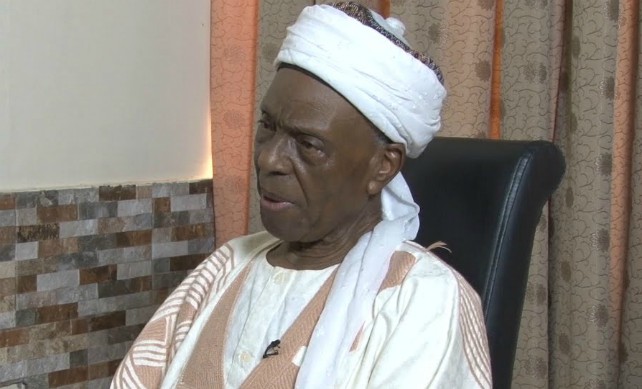Ambassador Shehu Malami (1937-2022)
Nigeria lost one of its illustrious sons last Monday, December 19, 2022, with the passing of Ambassador Shehu Othman Malami, the Sarkin Sudan of Wurno. Late Malami died in an Egyptian hospital in Cairo, where he was receiving treatment. He was aged 85. Malami was a forebear of the great Islamic reformer and founder of […]

A shareholder and Chairman of the Abuja Electricity Distribution (AEDC), Ambassador Shehu Malami
Nigeria lost one of its illustrious sons last Monday, December 19, 2022, with the passing of Ambassador Shehu Othman Malami, the Sarkin Sudan of Wurno. Late Malami died in an Egyptian hospital in Cairo, where he was receiving treatment. He was aged 85. Malami was a forebear of the great Islamic reformer and founder of the Sokoto Caliphate, Sheikh Usman bin Fordiyo, popularly referred to as Shehu Danfodiyo. He belonged to the Sultan Bello ruling house.
Shehu Othman Malami, who was also addressed as “the Oxford Man,” was born in Sokoto in 1937 and had his early education there before proceeding to Katsina and Bida for his basic education. He also attended various colleges in England for both his ordinary and advanced levels of GCE. He later bagged a degree in law from the Middle Temple, London, and was a visiting scholar at Wolfson College, Cambridge University. He was also an Associate Member of St. Anthony’s College, Oxford University.
In an illustrious career spanning many decades, Malami was an accomplished technocrat, entrepreneur and administrator who played a major role in the development of the private sector in Nigeria, then dominated by foreign interests, including at Costain West Africa, Nigeria Industrial Development Bank, PZ, and Indo-Nigeria Merchant Bank. He was a member of the executive committee of the Nigeria-USA Business Council and a member of the International Advisory Council and World Economic Forum Foundation in Geneva, Switzerland. He was also at one time the chairman of the Union Bank and was on the board of many other businesses.
Among his several national assignments, Malami served as Nigeria’s first High Commissioner to South Africa following that country’s return to majority rule in 1994. During his decades of service to the Sultanate, Malami was widely regarded as a link between tradition and modernity. As the Private Secretary to the then Sultan Abubakar III, he was credited with adding value to the administration by confronting the obvious demand for modernity that was creeping into the palace administration.
- AbdulRazaq knocks ex-govs Saraki, Ahmed over UBEC funds
- 2 killed, 10 abducted in Kebbi bandits’ attack
The late Malami also excelled at providing for his immediate community, even though he was operating at national and international levels. As Sarkin Sudan of Wurno, an esteemed position in the Sokoto Caliphate, he saw to the establishment of the office of the Zonal Agricultural Development Programme in Wurno, the Zonal Health Project, and a primary health centre, which was later upgraded to a general hospital. He had personally established the Zaki Bottling Company and a burnt brick industry to provide employment to his people.
The late Sokoto prince was also deeply involved in providing solutions to the numerous problems facing the northern region. As the chairman, Board of Trustees of the Arewa Consultative Forum, the late Sarkin Sudan was also known as someone who stood his ground on issues of principle. In an interview with this paper, he narrated how he refused to apologise to his principal at the Provincial Secondary School in Katsina when he was accused of not spending a school holiday in Katsina, even though there was no clear directive to that effect. The late Malami also rejected and resigned his appointment as Sarkin Bauran Dange and District Head of Dange following his transfer from Wurno because, as he would later narrate, he felt the decision, by the then Sultan Ibrahim Dasuki, was done in bad faith.
As a man of many worlds, Malami was not without controversy. In a now-famous speech he delivered at the NYSC Orientation Camp at Bodinga in 1986, he mentioned two ruling houses that had not produced a Sultan and were not laying claim to it. This stirred up reactions from the Sokoto Emirate Council, to which Malami was compelled to issue an apology as the council felt he was wrong, which he did.
In his condolence message, President Muhammadu Buhari described the late Malami as a “business leader respected globally, who believed in Nigeria’s economic prowess. He was an icon of business and industry and a graceful traditionalist.’’ Similarly, Governor Aminu Waziri Tambuwal of Sokoto State described the late Sarkin Sudan as a humble and astute personality who would be remembered for personifying the norms and values that made the Sokoto Caliphate great. The governor added that, the deceased’s knowledge of the country, its politics and economy would be missed on the national scene, especially at this time of another democratic transition.
The Arewa Consultative Forum (ACF) also said it received with shock the death of its chairman, board of trustees, Ambassador Shehu Malami, Sarkin Sudan Wurno. In a statement, ACF Secretary General, Murtala Aliyu, said Nigeria would miss Malami’s “extraordinary leadership skills, his generosity, his sense of justice and fair play’’. Indeed, the Sokoto Caliphate, North and Nigeria as a whole have lost an illustrious son whose wealth of experience and generosity will be sorely missed.
Daily Trust joins millions of Nigerians, his family and admirers, in praying to Almighty Allah to grant him Al-Jannah Firdausi.
